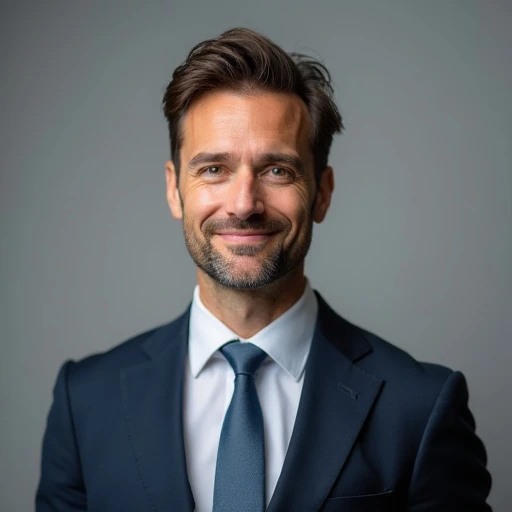Investment firm Momentous Sports is launching a new $100 million fund dedicated to investing in sports teams and their associated real estate assets. The firm has secured backing from prominent figures, including former NFL quarterback John Elway, and has already made a significant investment in a Florida-based soccer club.
Led by Marley Hughes and Kyle Israel, the fund represents a growing trend of viewing sports franchises not just as passion projects but as complex assets with diverse revenue streams. The strategy emphasizes the value of real estate development surrounding stadiums and team facilities.
Key Takeaways
- Momentous Sports has launched a $100 million fund to invest in sports franchises and related real estate.
- The fund is backed by notable investors, including John Elway, Tim Tebow, and Chick-fil-A CEO Andrew Cathy.
- Its first major investment is in Sporting Jax, a Florida soccer club planning a new stadium and mixed-use development.
- The investment thesis prioritizes the real estate opportunities around sports teams, such as commercial, retail, and residential properties.
New Fund Enters Sports Investment Arena
A new investment firm, Momentous Sports, has announced its entry into the sports market with a $100 million fund. The firm plans to acquire stakes in sports teams and invest in the real estate projects connected to them. This initiative is a breakout from Magnolia Hill Partners, an Orlando-based family office co-led by Hughes and John Shain.
The fund's leadership, Marley Hughes and Kyle Israel, are targeting opportunities across the United States and Europe. They aim to capitalize on the increasing valuation of sports franchises and the untapped potential of their physical footprints.
High-Profile Backers and Initial Investment
Momentous Sports has attracted a group of influential seed investors. The list includes NFL legends John Elway, Tim Tebow, and Blake Bortles. They are joined by Andrew Cathy, the CEO of Chick-fil-A, and John Shain, a co-founder of FS Investments.
The fund's first move is a lead investment in Sporting Jax. The Florida-based soccer organization recently launched a women's team and plans to establish a men's team to compete in Major League Soccer (MLS). The project includes a new stadium, surrounding real estate, and community sports fields.
The Growing Appeal of Sports as an Asset Class
Investing in sports teams has evolved from a hobby for the ultra-wealthy into a sophisticated financial strategy. The value of media rights, sponsorships, and merchandise has sent franchise valuations soaring. The recent sale of the Boston Celtics for $6.1 billion—a significant increase from its $360 million purchase price 23 years prior—highlights the immense returns possible in this sector.
Beyond the Team: The Real Estate Play
A core component of the Momentous Sports strategy is its focus on real estate. The fund is particularly interested in teams that are planning to develop or expand their facilities. Bobby Henebry, who manages John Elway's family office, explained the rationale behind this approach.
"One of the reasons we like teams that include real estate is because it becomes its own distinct asset class; if you own a stadium, you could also own multifamily, commercial, retail, and/or mixed use around the stadium. It is a great opportunity," Henebry stated.
This strategy transforms a sports investment into a broader real estate venture. The development of areas around a stadium can create a self-sustaining ecosystem of businesses and residential spaces.
Identifying the Right Opportunities
According to Henebry, the ideal investment is not always the most glamorous team. The fund seeks situations with a clear catalyst for real estate development. This could be a mid-market team planning a new stadium or a major franchise preparing to host a large-scale event like the Super Bowl or World Series.
Ancillary Revenue Streams
The real estate connected to a sports team can generate consistent income through various channels, including:
- Parking facilities
- Restaurants and bars
- Retail stores
- Commercial office space
- Residential apartments or condos
These ventures provide cash flow independent of the team's on-field performance.
A Disciplined Approach to a 'Cool' Asset
While owning a sports team carries a certain prestige, Henebry emphasized that investment decisions must be based on sound financial analysis. The potential returns must justify the significant costs and inherent risks of real estate development and franchise building.
"You can’t overlook the numbers and the inherent risks when you’re developing real estate or building a new franchise in a new market," he warned. "You have to kind of walk around that and look at the risks and tradeoffs in each investment you’re making, despite the cool factor or the prestige."
He noted that different sports and teams present unique financial profiles. Some investments may require sustained capital injections in the short term, while others offer immediate growth potential. The fund's objective is to build a diversified portfolio across various teams and projects.
Navigating the Complexities of Sports Ownership
Investing in sports is not without its challenges, particularly for minority stakeholders. In the United States, tax regulations can complicate the financial picture for passive investors. Team owners who are actively involved in operations can deduct certain intangible assets, such as brand value and sponsorships, as business expenses over a 15-year period.
This tax benefit is often unavailable to limited partners (LPs) who do not participate in day-to-day management. One chief investment officer from a family office, who remained anonymous, told reporters they passed on the Boston Celtics deal for this reason.
"The GP gets all the tax benefits, and the LPs get nothing, which to me, is completely worthless," the CIO said, highlighting the financial disparity between active and passive investors.
This structure can make minority stakes less attractive to purely financial investors. However, Momentous Sports aims to create value through its strategic focus on real estate and operational partnerships, building a model that provides returns beyond the traditional benefits of team ownership.




